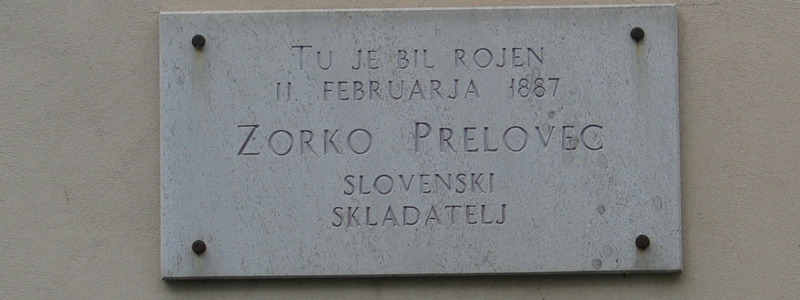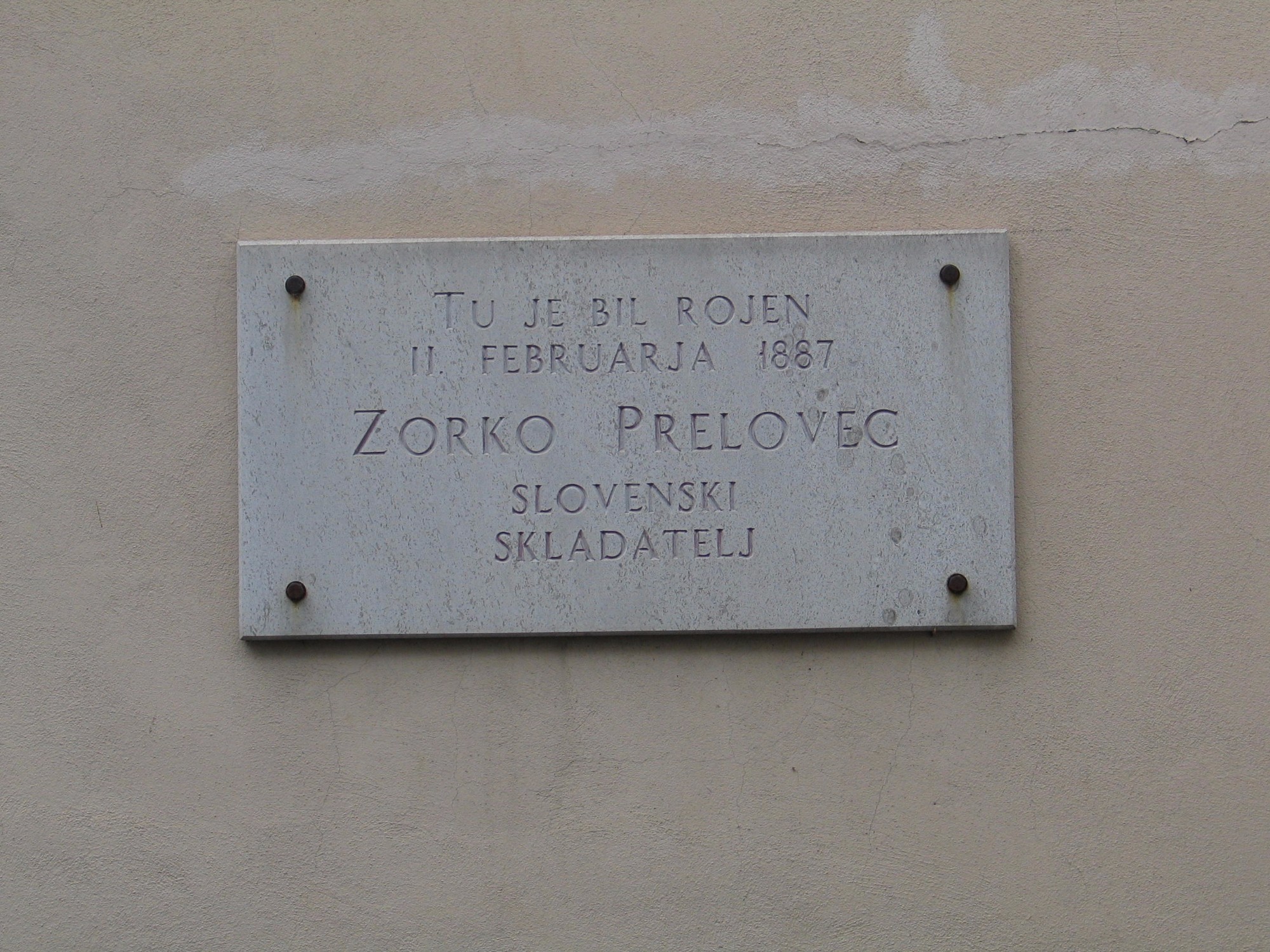In 1951, a plaque was attached to the façade of the birthplace of Zorko Prelovec in Idrija’s Prelovčeva Street. The engraved inscription reads:
“ON 11 FEBRUARY 1887
ZORKO PRELOVEC,
A SLOVENIAN COMPOSER,
WAS BORN HERE.”
Zorko Prelovec
Musician and composer Zorko Prelovec (1887–1939) holds a permanent place in Slovenian national consciousness as an influential choirmaster and composer of vocal music, predominantly choral works and lieder.
Prelovec was involved in music from an early age. While a secondary-school student he developed a keen interest in violin and played it in school orchestras. During this period, he founded some orchestras himself and conducted choirs. Prelovec’s ambition to study music in Vienna was frustrated by the adverse circumstances of his life, which compelled him to engage in music as an autodidact for most of his life. The two most probable influences on Prelovec were the composer and organist of the Novo mesto Chapter Church, Ignacij Hladnik, as well as organist and choirmaster Ivan Pogačnik from Idrija.
In Ljubljana, he gained some experience at the Glasbena matica Music Society Choir, conducted by Matej Hubad, who in all probability also proved instrumental in broadening Prelovec’s choral music horizons. In this domain, Prelovec later on rose to prominence as a choirmaster of the Merkur Society Choir, and between 1910 and 1935, as the chorusmaster of the Ljubljanski zvon Choir. Many musicians were of the opinion that Prelovec can be credited with significantly enhancing the Ljubljanski zvon Choir’s artistic development. Prelovec held concerts in Ljubljana with this choir, as well as at venues around Slovenia and the then Yugoslavia. In 1922, he became the first choral director of the Association of Slovenian Choirs.
He also engaged in publishing. On his initiative, the Ljubljanski zvon Choral Society started to publish new Slovenian choral compositions in 1920, and as of 1925, a monthly publication, Zbori (Choirs), which was edited by Prelovec until 1934. The publication featured secular and church music works by most of the leading Slovenian, Croatian and Serbian composers. An edition of Zbori also included works by Prelovec (16 choral pieces and lieder). From 1926, this magazine also comprised a literary supplement containing treatises, articles, correspondence, reviews and reports, most of which were penned by Prelovec.
As a composer, Prelovec enriched the Slovenian vocal music treasury with his numerous original choral compositions and lieder. Especially popular and valued are his choral pieces for male voices, whose baritone solo parts reflect the idiosyncratic sentimentality of Zorko Prelovec’s musical texture. Furthermore, he adapted a great number of Slovenian national songs and published them in the collections Album za srednji glas s klavirjem (Album for Middle Voice and Piano) and Šest narodnih za srednji ali nizki glas s klavirjem (Six National Songs for Middle or Low Voice and Piano, 1929). His most notable and famed national song adaptation is Oj Doberdob (Oh, Doberdob). In 1908, Prelovec published a collection of national songs from Idrija. Some of his adaptations were also issued posthumously. One of Zorko Prelovec’s most prominent spiritual compositions is the musical setting of Ave Maria for soprano, mixed choir and organ.
Maia Juvanc

